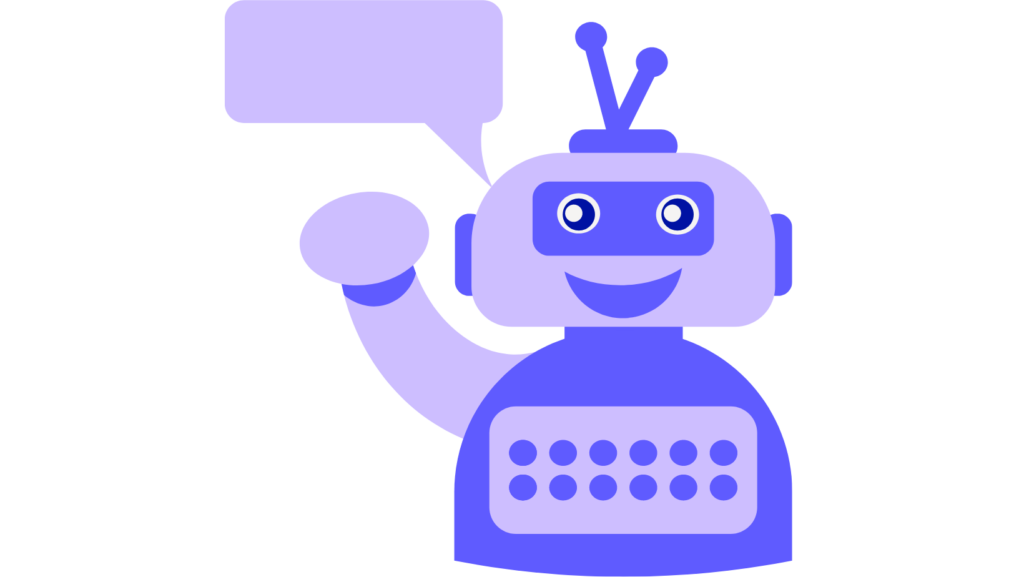Are AI Virtual Assistants the workforce of the future?
The growing popularity of AI virtual assistants has influenced this technology to rapidly advance and develop. In a world where many companies are struggling to maintain an efficient workflow from home, tech companies are focused on unlocking the full potential of virtual assistants.
Many people encounter virtual assistants in their daily life, even though they don’t always realise it. Tech companies right now are aiming to develop virtual assistants with a ‘know-it-all, do-it-all’ motto – a highly personalized assistant that will identify and fulfill consumer’s needs through their personal data.

What is really an AI Assistant?
So, to put it simply, an AI virtual assistant or a digital assistant is a technology that understands voice commands. Users use natural language to give tasks to these assistants – which are understood and further performed by these digital assistants.
AI technology is aiming to replace secretarial and administrative workers with digital assistants, who are able to conduct tasks such as taking dictation, organizing, finding phone numbers and calls, reading texts, setting meeting schedules and reminders, and many more.
What are the types of AI Assistants?

Virtual assistant as a term also describes contracted workers who work administrative tasks from home – usually performed by secretaries and executive assistants. Another type of AI assistants are smart advisers – which are consumer-facing AI programmed. While smart advisors are subject-oriented, virtual assistants are task-oriented.
What can AI Assistants do?
AI assistants are all equipped with technology with enables them to:
- Conduct quick searches and offer information;
- Add tasks, reminders, and schedules to calendars;
- Control the status of devices belonging to smart homes, such as: lights, thermostats and cameras;
- Receive and make phone calls;
- Write text messages, emails;
- Get and give directions;
- Read weather reports and magazines or news;
- Check flight reservations;
- Find and play music;
- Check hotels, restaurants and more.
Best virtual assistants and their tasks:
According to Tech Research Online, 2020, even though it’s a very competitive market, the following results show how the virtual assistants have been ranked based on market share and their technology advance:
Siri
Using voice queries and natural language user interface (UI) to function, Apple’s AI Assistant Siri is among the most popular virtual assistants and has the most demanded apps. She can do tasks such as:
- Assign requests to many internet services;
- Give recommendations and answer received questions;
- Make calls and messages;
- Help with directions, read news and weather reports.
Siri is available on multiple Apple platforms, such as: IOS, macOS, watchOS, tvOS and iPadOS. In September, 2018, a survey from Voicebot Voice Assistant Consumer Adoption Report showed that around 44% of adult smartphone users in America use Siri actively.
Cortana
Created by Microsoft, Cortana is yet another popular AI assistant. Using NLP, Bing Search Engine, and data from different devices, Cortana is able to offer personalized recommendations. Cortana can perform tasks such as:
- Answer different questions;
- Offer hands-free help;
- Manage tasks;
- Keeps notes, sends reminders;
- Provides calendar help.
Learning from device data, Cortana is able to offer help in many other complex tasks as well. It is available on: Windows mobile, Android, iOS, Invoke Smart Speakers, Xbox One, CloudX, and HyperX, Razer Kraken 7.1 V2, Sennheiser GSP350, Logitech G933, Amazon Alexa.
Google Assistant
One of the most advanced virtual assistants is the one created from Google, in 2016. It can perform different tasks, such as:
- Voice searching and commands;
- Find information online, help with online tasks;
- Translation of services;
- Device control automed from voice;
- Make appointments and set reminders.
Since Google collaborated with many companies, Google Assistant is available in a wide range of devices, for instance: headphones, cars, smartphones and fridges.
A report from Tech Research Online in 2018, shows that the Google virtual assistant has reached up to 10,000 devices from 1,000 different brands.
Alexa
Also known as Amazon Alexa, in 2019 according to Tech Research Online she was available on 60,000 devices in May 2019. She can perform different tasks, for example:
- Stream podcasts;
- Play music and audiobooks;
- Set alarms and/or appointments;
- Create to-do lists, check weather, traffic, sports, news – all in real-time.
Alexa is available in: Amazon Echo and Amazon Echo Dot smart speakers, Android, iOS, PCs and laptops.
Bixby
Samsung also introduced its virtual assistant named Bixby. It is very similar to other AI virtual assistants, and can carry a wide range of services as well. For example:
- Gather information on today’s news, weather reports;
- Set meeting reminders;
- Switch off lights;
- Control devices, turn on/off air conditioner, lights;
- Personalize answers;
- Take selfies;
- Share pictures on Facebook;
- Change the TV channels;
- Answer calls and send messages.
Bixby is set up to work on several Samsung devices, such as: Samsung Galaxy C8, Samsung Galaxy Watch, Samsung Galaxy Tab S5e, Samsung Galaxy A8 Star, Samsung Galaxy A series, Samsung’s Family Hub fridge and TVs, Samsung Galaxy Home Bixby speaker.
DataBot
Databot differs from other virtual assistants because it can give really interesting and important insights in many different topics. Other tasks it can perform are:
- Provide information, images and multimedia presentations;
- Calculate and monitor the health;
- Play music commanded by voice;
- Entertains users by telling different jokes and quotes;
- Read the news, other online information as requested. For example: today’s horoscope.
Another unique feature of DataBot is the ability to adapt in 6 different languages:
English;
German;
Spanish;
Portuguese;
French and
Italian.
DataBot is available on Windows phones, Xbox One, iOS, iPad and Ipod, Android phones and tablets and Windows 10.
Lyra
Lyra is among the most intelligent virtual assistants, since she is able to understand different languages, voice context and intent. She can successfully perform several tasks, including:
- Find the best restaurants, hotels, or bars;
- Conduct search on Wikipedia, Google, YouTube, Yahoo, and more;
- Control music by voice;
- Translates in 70 languages;
- Connect on numerous social media;
- Give direction and find locations on Google Maps.
Lyra is supported on smartphones, laptops, computers and tablets of Android, Windows and iOS.
Hound
Hound is categorized into voice assistant apps. This app uses Deep Meaning and Speech-to-Meaning Understanding technologies. Hound has a very impressive clientele, by being of service for Honda, Motorola, Hyundai, and Mercedes-Benz.
It can perform many tasks, for instance:
- Make Uber calls;
- Check the status of flights;
- Search for information;
- Provides fast and correct results and more,
- Hound can perform in Windows, Android and iOS devices.
Youper
Founded and developed from the Goodwater Capital, Youper is an AI emotional health assistant. By using AI technology, Youper personalized its impression of understanding the users while tracking their mood. It has really positive reviews and has been ranked quite highly by health and technology experts.
Youper help its users by:
- Guiding them in personal meditation;
- Exchange quick conversations;
- Control their emotional mood and health.
- It is available in devices of both iOS and Android.
Sources:
- https://techresearchonline.com/blog/best-ai-assistant-of-2021/#
- https://techresearchonline.com/technology/application-development/erp/ready-get-set-for-growth-6-distributors-reveal-the-secrets-of-their-success/
- https://voicebot.ai/2018/11/01/apple-siri-continues-to-lead-in-voice-assistant-usage-on-smartphones/
- https://www.zdnet.com/article/virtual-digital-assistants-will-overtake-world-population-by-2021/
- https://techresearchonline.com/blog/artificial-intelligence-is-promising-much-better-future-for-video-conferencing/
